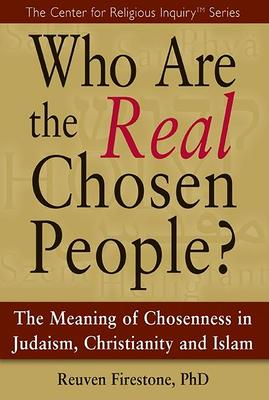What Does It Mean to Be "Chosen"? Why Did God Have to Choose?
"To be chosen can have a range of meaning from the mundane to the holy, but in all cases it means to be singled out and preferred over others. In a deep sense that permeates much or most of Western culture, having been chosen communicates a sense of something that is extraordinary, is transcendent, and entitles a reward. What is assumed in this sense of the term is that God has done the choosing and the reward is something that is unequaled, for what could possibly equal divinely ordained eternal happiness?"
--from the Introduction
Religious people who define themselves as monotheists have often advanced the idea that their relationship with God is unique and superior to all others. Theirs supersedes those who came before, and is superior to those who have followed. This phenomenon tends to be expressed in terms not only of supersessionism, but also "chosenness," or "election." Who is most beloved by God? What expression of the divine will is the most perfect? Which relationship reflects God's ultimate demands or desire?
In this fascinating examination of the religious phenomenon of chosenness, Reuven Firestone explores the idea of covenant, and the expressions of supersessionism as articulated through the scriptures of the three major monotheistic religions: Judaism, Christianity and Islam. He explores how and why the ongoing competition and friction between these religions came about, and offers thoughts about how to overcome it.










